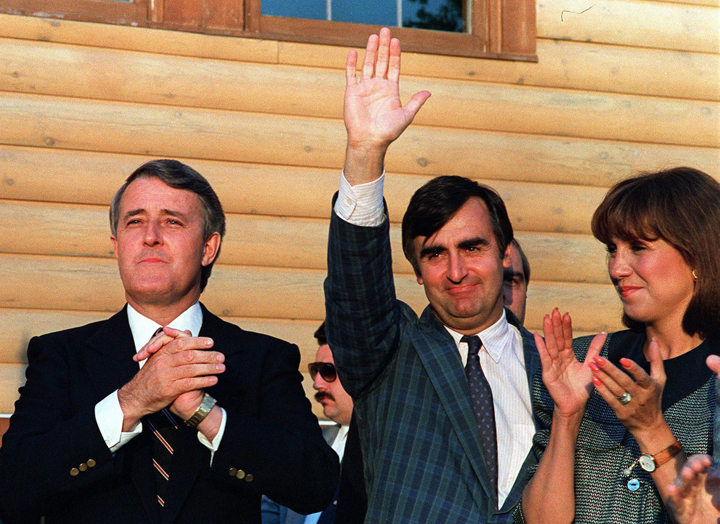Brian Mulroney, Canada’s 18th prime minister and one of the country’s consequential leaders, is being remembered by politicians of all stripes as “transformational” and as a “very sincere man who was honest and direct.”

Tributes came pouring in from across his home province of Quebec as the country learned about the death of Mulroney, who passed away peacefully and surrounded by family at the age of 84.
“We’re losing one of the greatest prime ministers in the history of Canada,” said former Quebec premier Jean Charest in an interview Thursday.
Mulroney was a mentor, friend and father figure to him. The “transformational” giant in Canadian politics “changed our country and our lives,” he added.
“I learned from Brian Mulroney how to lead,” Charest said. “And what I remember most about him is his extraordinary generosity.”
Quebec Premier François Legault noted Mulroney’s long list of accomplishments — among them being a “visionary” by heralding a free trade deal with the U.S. and Mexico by voicing his strong opposition to apartheid in South Africa.

Get daily National news
Legault also remembered Mulroney as the “little guy from Baie-Comeau,” where he was born in March 1939. Mulroney’s childhood in the mostly francophone and isolated smelting town on the province’s north shore greatly shaped his political career and personhood.
“He was also a true ambassador who promoted Quebec and Canada throughout the world,” Legault said in a statement on social media. “My thoughts are with his family and loved ones.”
Mulroney first rose to prominence in Quebec after then premier Robert Bourassa appointed him in 1974 to the Cliche commission investigating union violence in the construction industry. His role would propel him to the front of Tory circles, and he stepped into the federal political sphere.
The flawlessly bilingual Mulroney is remembered as someone who deeply loved his home province and who managed to court voters in the 1984 federal election. The Progressive Conservatives won a decisive 58 seats in Quebec as part of the landslide victory in which Mulroney became Canada’s 18th prime minister.
But Mulroney also tried — and ultimately failed — to bring Quebec into the Canadian Constitution. After the Meech Lake Accord fell apart, Mulroney lost one of his closest confidants.
Lucien Bouchard, who had once been Mulroney’s Quebec lieutenant, defected and went on to form the separatist Bloc Québécois in 1991. It came as a political and personal blow to Mulroney.
What followed for the pair was a “period of darkness where we were both silent” but Bouchard said Thursday “at the end we reconciled.” They spoke as recently as last Friday.
Despite their profound rift, Bouchard described Mulroney as a “very sincere man, but very honest and direct” who did great things, he said. They first met at the age of 20 at Université Laval’s law program in Quebec City.
“What you saw was real,” Bouchard said.
Mulroney was “full of life” and “very funny.” While Bouchard was happy they made up recently, he said everyone in Quebec and Canada is faced with a great loss.
“He loved us. He loved all of us,” Bouchard said.
Luc Lavoie, who was a spokesperson for Mulroney, feels like he lost a “second father.” Mulroney was not only generous, he was a noble man, he said.
“He has been everything to me,” Lavoie said.
— with files from Global’s Elizabeth Zogalis and The Canadian Press





Comments